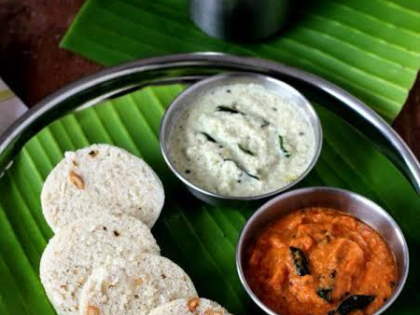Kancheepuram’s sacred ‘Koil Idli ’ inches closer to GI tag recognition
By IANS | Updated: July 23, 2025 13:04 IST2025-07-23T12:59:42+5:302025-07-23T13:04:29+5:30
Kancheepuram, July 23 The iconic Koil Idli, a time-honoured delicacy served as an offering at the historic Sri ...

Kancheepuram’s sacred ‘Koil Idli ’ inches closer to GI tag recognition
Kancheepuram, July 23 The iconic Koil Idli, a time-honoured delicacy served as an offering at the historic Sri Varadharaja Perumal Temple in Kancheepuram, is now on the path to receiving a Geographical Indication (GI) tag, a move expected to cement its cultural and culinary significance.
The Tamil Nadu Food Processing and Agri Export Promotion Corporation (TNAPEx) has submitted the formal application for GI status, with support from the Madurai Agribusiness Incubation Forum -- an initiative jointly promoted by NABARD and the Tamil Nadu Agricultural University (TNAU).
The recognition, if granted, will offer legal protection and boost efforts to preserve the traditional method of preparation that makes the Koil Idli unique.
This distinctive idli, unlike its soft and fluffy South Indian counterpart, is known for its coarse texture, rich flavour, and sacred significance.
Measuring nearly a foot in length, it forms part of the daily ritual offerings to Lord Varadharaja during the temple’s Thiruvaradhanai ceremony.
The idli’s preparation is rooted in centuries-old temple tradition. Coarsely ground parboiled rice and whole urad dal form the base, mixed with crushed black pepper, cumin seeds, dry ginger powder, asafoetida, curry leaves, ghee, sesame oil, sour curd, and salt.
The batter, fermented overnight, is then poured into bamboo baskets or steel tumblers lined with dried Mandharai leaves, which impart a distinctive aroma. The containers are covered with more leaves and steamed gently for up to an hour.
S. Balaji, who has been making Koil Idlis at the temple’s Pathukadai prasadam counter for over four decades, insists that the recipe must be followed precisely.
“Even a slight variation changes the flavour. The Mandharai leaves play a crucial role. People from far and wide come here to take it home in large quantities,” he said.
Religious scholar Akkarakani Srinidhi Swami hailed the move to secure GI status. “The origin of this offering may be lost to time, but its presence in temple rituals has been constant. It’s fitting that such a sacred dish receives due recognition.”
If granted, the GI tag will help protect and promote one of Tamil Nadu’s most revered culinary offerings -- one that blends spirituality, tradition, and taste.
Disclaimer: This post has been auto-published from an agency feed without any modifications to the text and has not been reviewed by an editor
Open in app